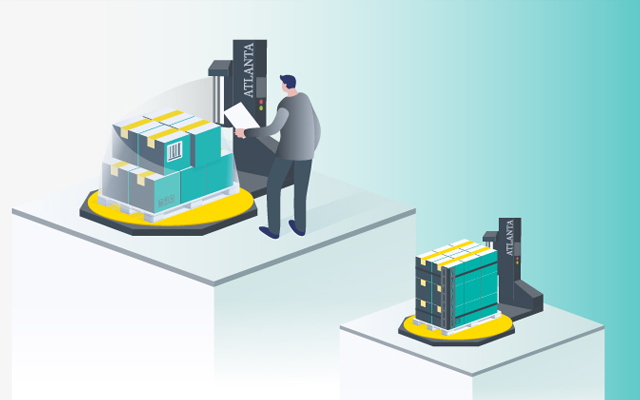
The most obvious reason is to reduce the costs of wrapping pallets, however did you know that optimising your pallet wrapping machine will significantly improve the stability of your pallet, and will also reduce the amount of plastic used in the pallet wrapping process? A further benefit is that a fully optimised and maintained wrapper will reduce downtime as well.
This depends on the machine, however the over riding principle is the same. First you need to understand the properties and capabilities of the film that is being used, then you need to ensure that the machinery is set to maximise the films performance and output. In most instances, pallet wrap machines are Power Pre Stretch (PPS), meaning that the machine film is stretched in the machine stretch head by rollers turning at different speeds, before it is applied to the pallet. Occasionally, the ratio of this stretching ability can be adjusted automatically, but in most instances this is dictated by gears attached to the rollers. Understanding the ability of the film and matching it to the gearing of the rollers is the single most important aspect of the optimisation process.
Lets take an example. Many stretch films are designed to stretch up to 250%, this means that 1 metre of film going into the stretch head will produce 3.5m of film coming out of it. A 250% stretch film is optimised and at it’s most stable when it is stretched by 235-245%, it is at this point where the film becomes rigid (no stretch left) before it snaps – and it is at this point where the optimum load stability and cost per pallet wrapped are achieved. If the machine is set up with 150% or 200% gears (which are very common), then the film will never be fully optimised and the costs will rise and load stability will decline. It is usually a relatively simple and low cost exercise to replace the gears on the pallet wrapper to convert it to a stretch level that matches the film. NOTE that increasing the stretch level beyond the capability of the film will result in regular film breakages and downtime on the machine. At Hazel 4D, our Extremus 44 stretch films will stretch to 300%, meaning 1m of film from the roll becomes 4m of film on the pallet. Typically we find that this will reduce the amount of plastic used per pallet by up to 70% and reduce the cost per pallet wrapped by 40-50% whilst significantly improving the load stability. We also now have a range of high performance Nano machine films with more than 30% recycled content, meaning they are plastic tax exempt!
The next thing to ensure is that the stretch rollers on the machine are undamaged and clean. Some manufacturers rollers are very susceptible to damage from operators trying to remove snapped film from the roller using a knife – you can read an article that we have written on this by clicking the link below.
Assuming the rollers are undamaged, a simple clean down using an industrial wipe or clean microfibre cloth and water will produce significant improvements.